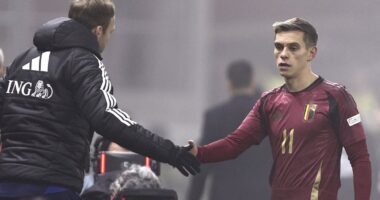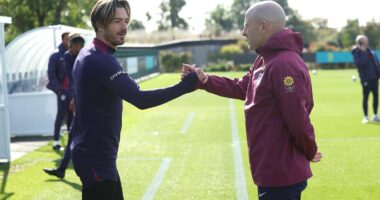As the U.S. Olympic Trials head into the homestretch — with four days left of world-class competition and global attention — another qualifying track meet for Paris is waiting in the wings. But the U.S. Paralympic Trials for the Paralympic Games have received scant scrutiny — despite an upheaval worthy of an Albert Camus novel. In August 2023, the governing body of U.S. para track and field — athletes with physical disabilities — said it would hold its trials July 18-21, 2024, at the Chula Vista Elite Athlete Training Center, the former Olympic Training Center. Seven months later, however, a change in venue was announced. The meet would be shifted 2,650 miles away to the Ansin Sports Complex in Miramar, Florida — northwest of Miami. Why the change? I’ve spent three months seeking answers. At first, I heard rumors of a threatened lawsuit. Later, I was told of a complaint by more than a dozen athletes. I filed a California Public Records Act request with the City of Chula Vista, which owns the training complex. Got little back. Sherrice Fox, director of the U.S. Para Track & Field Committee, didn’t respond to numerous queries. But Paralympian Lacey Henderson, a retired amputee long jumper now working with NBC, provided details. Henderson told me a formal complaint was filed by about 20 athletes, including elected athlete representatives in para track and field. She said U.S. Para Track & Field was in “direct violation” of the National Team Athlete Support program when it covered lodging costs of national team athletes who lived and trained at the Chula Vista center — but let others fend for themselves. “This also created an unequal playing field for nonresident athletes as they did not have access to indoor toilets — even though we have athletes who are quadriplegics and have compromised immune systems,” Henderson said. “Nonresident athletes also did not have access to storage or transportation. Again, those highly affected athletes were then burdened to cover the cost of travel and transportation of equipment all while being more limited in their mobility. Resident athletes were able to go back to their dorms, use indoor restrooms and have storage available to them and their equipment without any additional costs to transportation.” Chula Vista also hosted the 2023 national para championships — the qualifying meet for that year’s World Para Athletics Championships (also held in Paris). Henderson, who competed in the 2016 Rio Paralympics, also cited “operational issues” at the May 2023 Chula Vista meet. “There were multiple measuring issues of seated throws and an unofficial second runway used during a long jump competition that would have voided any record,” she said. She noted the disparate audience seating for the 2021 Olympic and Paralympic trials, with Chula Vista “not allowing us to have spectators at the event” while the able-bodied event in Eugene, Oregon, had spectators. “Many athletes were upset, and then CVEATC doesn’t even have seating for any spectators as well, which would perpetuate the stunting of growth and support for the sport,” Henderson said via email. (The Chula Vista center sports a grassy area next to the track — with a nearby restroom part of a storage building — and only modest bleachers.) Henderson added: “The athletes represented themselves although USPTF hired lawyers to attend the hearing, even though we had already reached a dismissal before the hearing.” Details of that hearing weren’t readily available. Nor could I identify the athletes who complained about the Chula Vista center. I wrote to Jerome Singleton, the Paralympian chair of U.S. Para Track’s Athlete Advisory Group, which serves “as the collective voice for its athlete population.” Singleton never responded. But Deja Young, an alternate on the USOPC Athlete Advisory Council, called Henderson’s critique “well grounded.” “As an athlete representative, I am for the best interest of the athletes,” she said. “CVEATC was not in the best interest of the athletes and [your] article will not be beneficial as athletes are preparing for Paris. USPARATF and USOPC has taken the time to make improvements and we are looking forward to the future.” Parents of several Para athletes shared their intel as well. “A group of athletes did consult an attorney,” said one. “I heard exactly what you have below re: some athletes live at the center and it was unfair because those who don’t have to pay travel and accommodations. I asked [my son] why he thought the athletes got an attorney involved and he said, (paraphrasing): ‘Well, some who didn’t do well at trials wanted to blame something.’” Said another: “Political posturing is something I stay away from, and I do not know names of any athletes that may be involved. The Ted Stevens Act is something that fascinates me
Subscribe
Login
0 Comments





